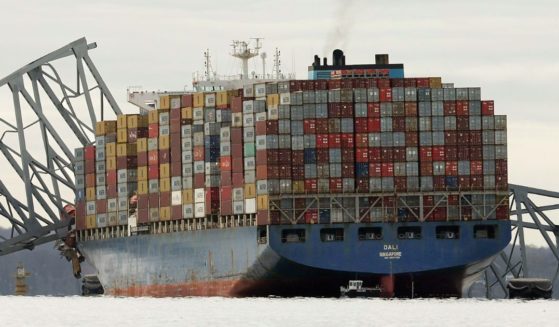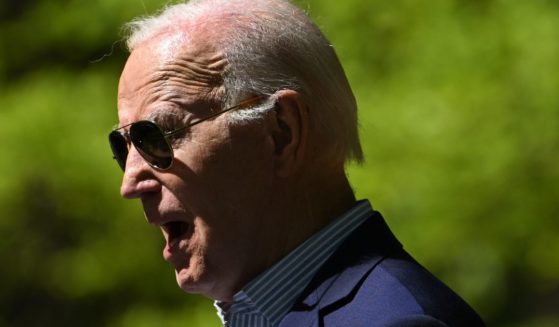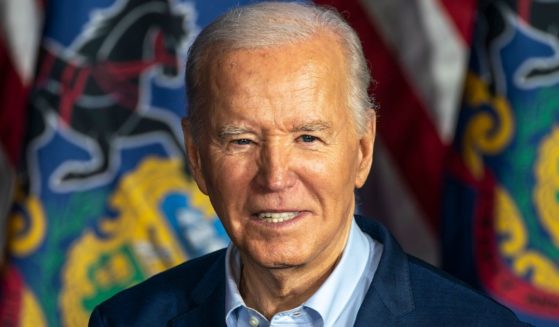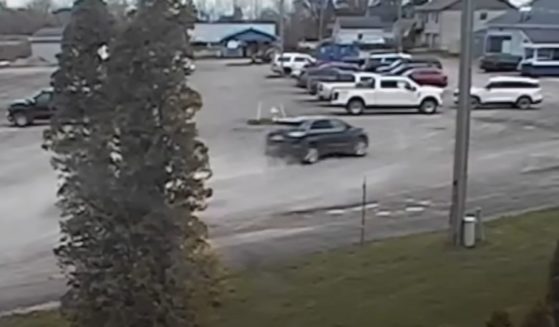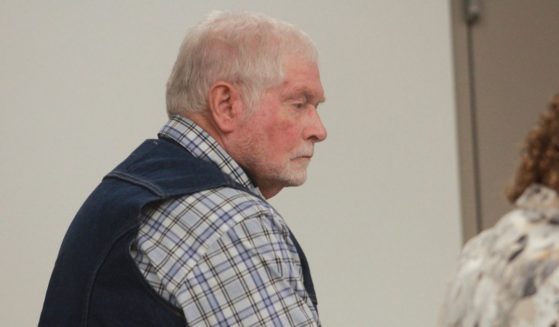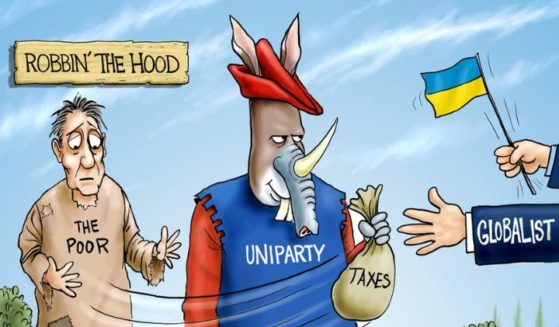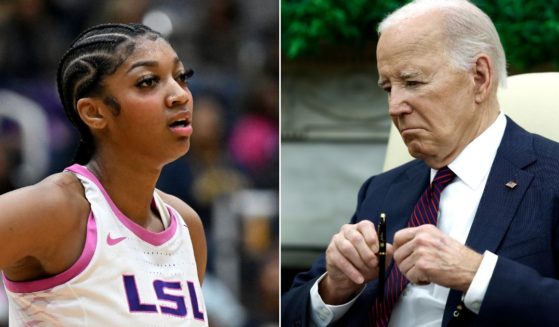Trump's Law-and-Order Message Resonating with Wisconsin Voters
Alexis Arnold of De Pere, Wisconsin, says she’s sympathetic toward protesters who have peacefully fought racial injustice this summer. But as demonstrations across the country have spiraled into violence, her anxiety is building.
“Why are we so broken right now?” the 44-year-old art gallery owner wondered.
The uncertainty is drawing her toward the stability she believes President Donald Trump can offer.
He has spent weeks bringing the issue of safety and security to the forefront of the presidential campaign. And there are signs Wisconsin voters are listening to him amid the recent rioting in Kenosha following the police shooting of Jacob Blake.
“The public just needs something to make them feel comfortable and safe again,” said Arnold, who is white, has voted for Democrats in the past and is raising a biracial daughter. “I almost rather see Trump stay and try to resolve it rather than bring somebody in new.”
That sentiment could prove decisive in Wisconsin, a state that put Trump in the White House in 2016 after he carried it by less than 1 percentage point.
But the images of rioting in Kenosha — of demonstrators clashing with police, burning businesses and vandalizing property — are intensifying the partisan divide in Wisconsin.
In interviews with dozens of voters in Green Bay and its suburbs, many Democrats claimed there was racism and fear-mongering in Trump’s messages, while Republicans were unwaveringly supportive of the president’s stance.
And some of the rare voters unsure of their choice said they felt drawn to Trump in this moment, a warning sign for Democratic nominee Joe Biden, who has sent out mixed messages on the issue.
“It was out there that he would get rid of the police,” Mike Guerts said, referring to the former vice president’s comments about reducing police funding.
“But do we agree that we can redirect some of the [police] funding?” Biden was asked in a July interview.
“Yes, absolutely,” he said.
Guerts, a 55-year-old postal worker from Madison, said he doesn’t yet know enough to feel comfortable with Biden.
“I’ve been a lifelong Republican. I’m torn,” he said. Guerts said police brutality is a problem, “but that does not excuse the lawlessness.”
There is far less ambiguity among Trump stalwarts. They saw Democrats and their celebrity allies as stoking the unrest.
“They haven’t done anything to stop it,” said Rick Demro, a 60-year-old retired commander with Green Bay police department. “You don’t see them back up law enforcement. They’re quick to cast judgment before the facts come out. I think all that does is promote the rioting instead of trying to quell it. Part of me says, it’s to help them for the campaign purposes.”
Demro said he’s particularly angered by professional athletes and organizations supporting an anti-police agenda — including his beloved Green Bay Packers. He hasn’t missed a home game since the early 1980s, and he waited for 30 years to get his season tickets. But this week, he talked to his wife about giving them up in protest. (She refused, he said, because she wants to pass them down to their children.)
Demro was among the Trump supporters who said they did see problems in policing. When he watched the video of a Minneapolis police officer pinning George Floyd to the ground in May, he said he knew it was “wrong.”
But the Black Lives Matters demonstrations and rioting in the months since have taken a toll on public support for protesters in the state.
A Marquette University Law School survey found support for the protests had fallen 13 percentage points from June to August and is now even with disapproval. The survey of Wisconsin residents, conducted before the shootings in Kenosha, found that support fell everywhere except the city of Milwaukee, including the suburbs, exurbs and large towns, where Trump and Biden are vying for supporters.
To win Wisconsin, Trump must run up the score in the conservative-leaning suburbs and exurbs across the state, working-class areas where trade unions’ allegiance to Democrats has faded and the pull of cultural issues has grown. While Trump dominated in Green Bay’s Brown County in 2016 — winning by 11 percentage points — the area supported a Democrat-backed Supreme Court justice this spring, in a surprising surge of Democratic turnout.
They were Democrats like Michelle Yurek, a fourth-grade teacher who was preparing to go back to teach in a classroom last week, as Trump told the Republican National Convention that “no one will be safe in Biden’s America.”
“I don’t think we’re safe in Trump’s America,” Yurek said from her home in a neat subdivision on the edge of Green Bay where she lives with her husband and three children. “I think he’s caused a lot of the division.”
Driving his supporters to the polls is critical for Biden. That means winning over voters like Brittaney Leake, a 27-year-old support staff worker at a group home and a mom of three, with another on the way.
Leake says she didn’t vote in 2016 because she’s disillusioned with what she sees as politicians’ unfulfilled promises. Biden hasn’t given her a reason to change course, she said.
“Just because he’s a Democrat doesn’t mean he has my vote,” she said. “If I can’t specifically see what he’s going to do for a change, I’m not going to vote for him. … There has to be action.”
Arnold, the gallery owner, voted for Democrat Hillary Clinton four years ago, but she has been happy with Trump’s record. She believes he’s trying to look out for businesses like hers, and she’s heard positive things about his criminal justice reform bill.
It seems daunting now to switch leaders at a time when she’s everyone is “stretched so thin,” Arnold said. She’s still mulling over her choice, wishing she could hear more from both candidates for a plan for a reset.
“I think we’re all just kind of worn out,” she said. “And we just want to get back to somewhat of a normal life.”
The Western Journal has reviewed this Associated Press story and may have altered it prior to publication to ensure that it meets our editorial standards.
Truth and Accuracy
We are committed to truth and accuracy in all of our journalism. Read our editorial standards.

